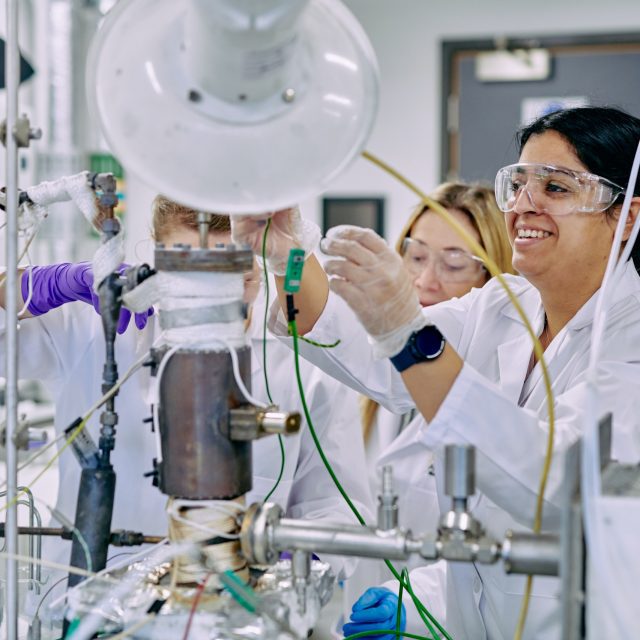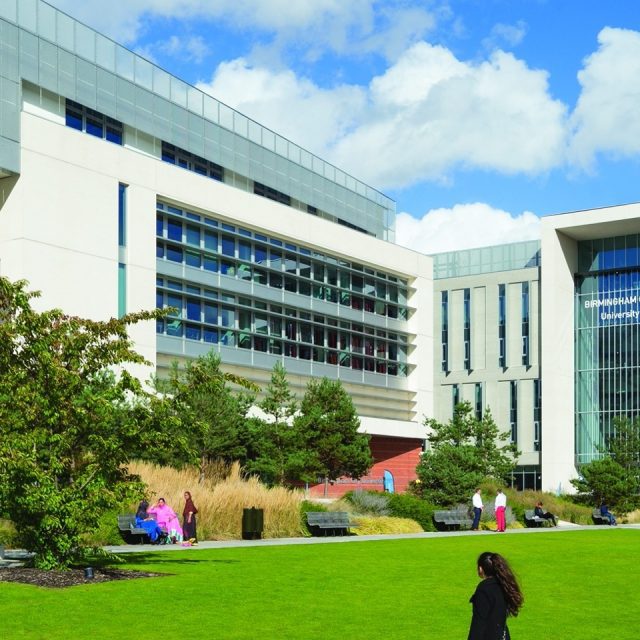Aerospace
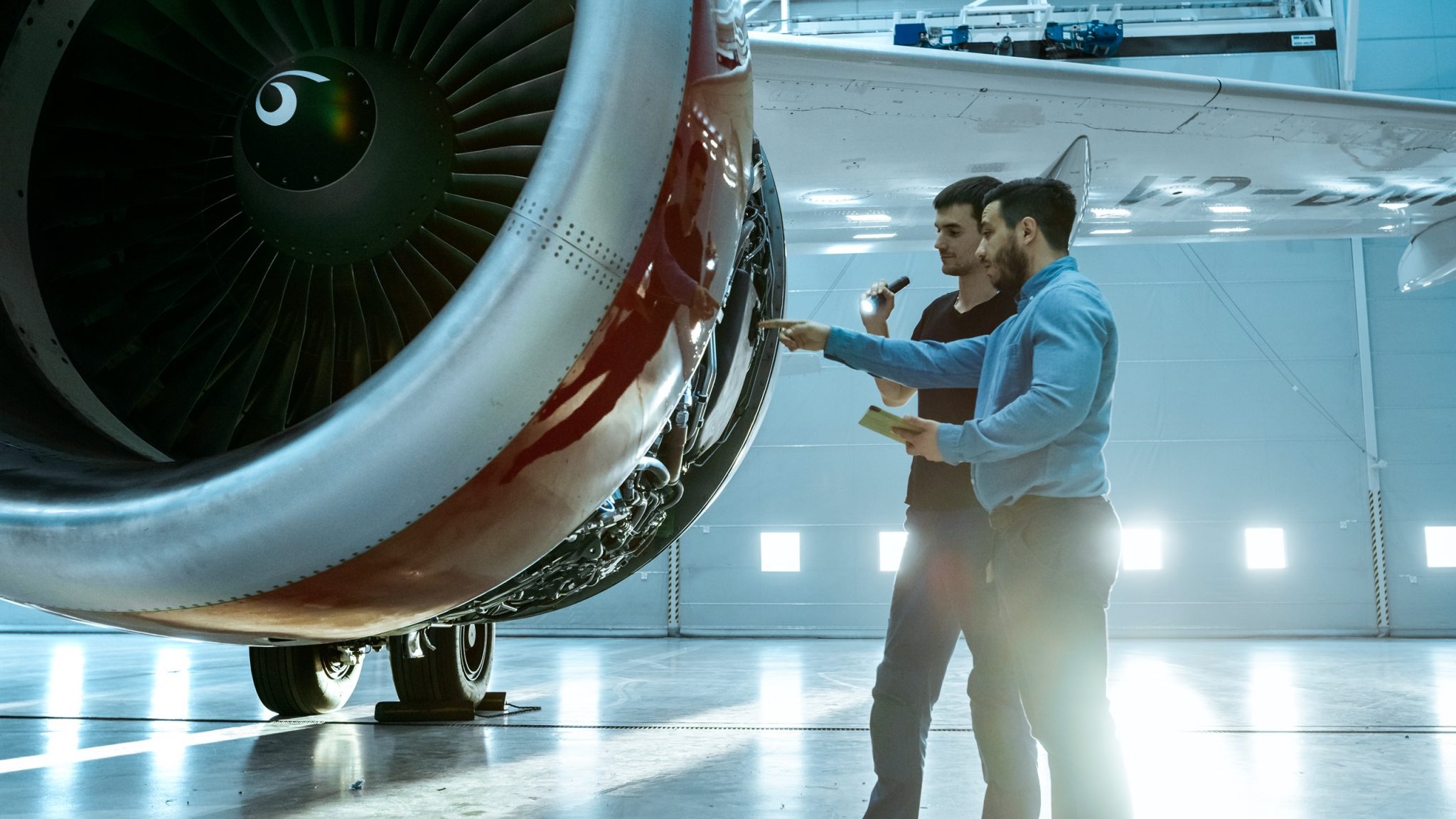
One of the largest aerospace sectors in the UK and Europe can be found in the West Midlands.
The West Midlands is a key location for Meggitt, Moog and Collins Aerospace, making it one of Europe’s most strategic aerospace manufacturing hubs.
Building on its rich industrial and transport heritage, our region’s aerospace cluster is turbocharged by deep transferable knowledge from local automotive and rail supply chains.
In addition to over 25,000 skilled professionals in aerospace-related fields (according to the West Midlands Economic Impact Monitor by University of Birmingham) the West Midlands is also home several dedicated aerospace material producers and pioneering universities. Together, they are driving the development of smarter, more sustainable air transportation solutions to achieve incredible things.
For innovative companies, the region offers more than a dynamic, high-growth environment, but an opportunity to propel the future of aerospace.
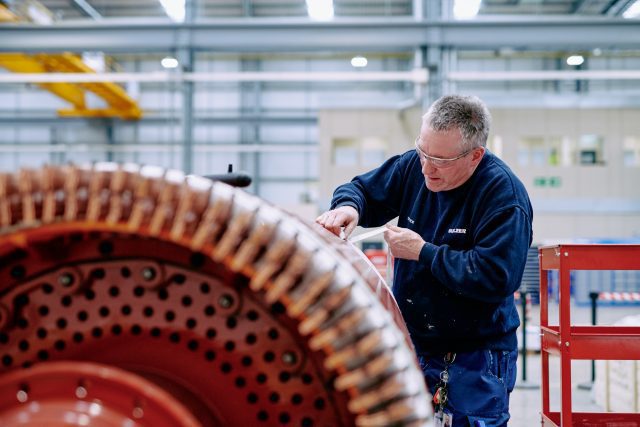
Aerospace
in the West Midlands
Midlands Aerospace Alliance
Based in Coventry, the Midlands Aerospace Alliance represents the largest aerospace cluster in Europe. Of its 300+ members, 60% make ‘flying parts’ while the other 40% provide design, testing, manufacturing and other specialist services. Their close collaboration with the region’s universities and industry drives low-carbon innovation across several aerospace applications and projects.
Businesses located in the region also benefit from access to a community of aerospace R&D specialists advancing research and product development through funded schemes.
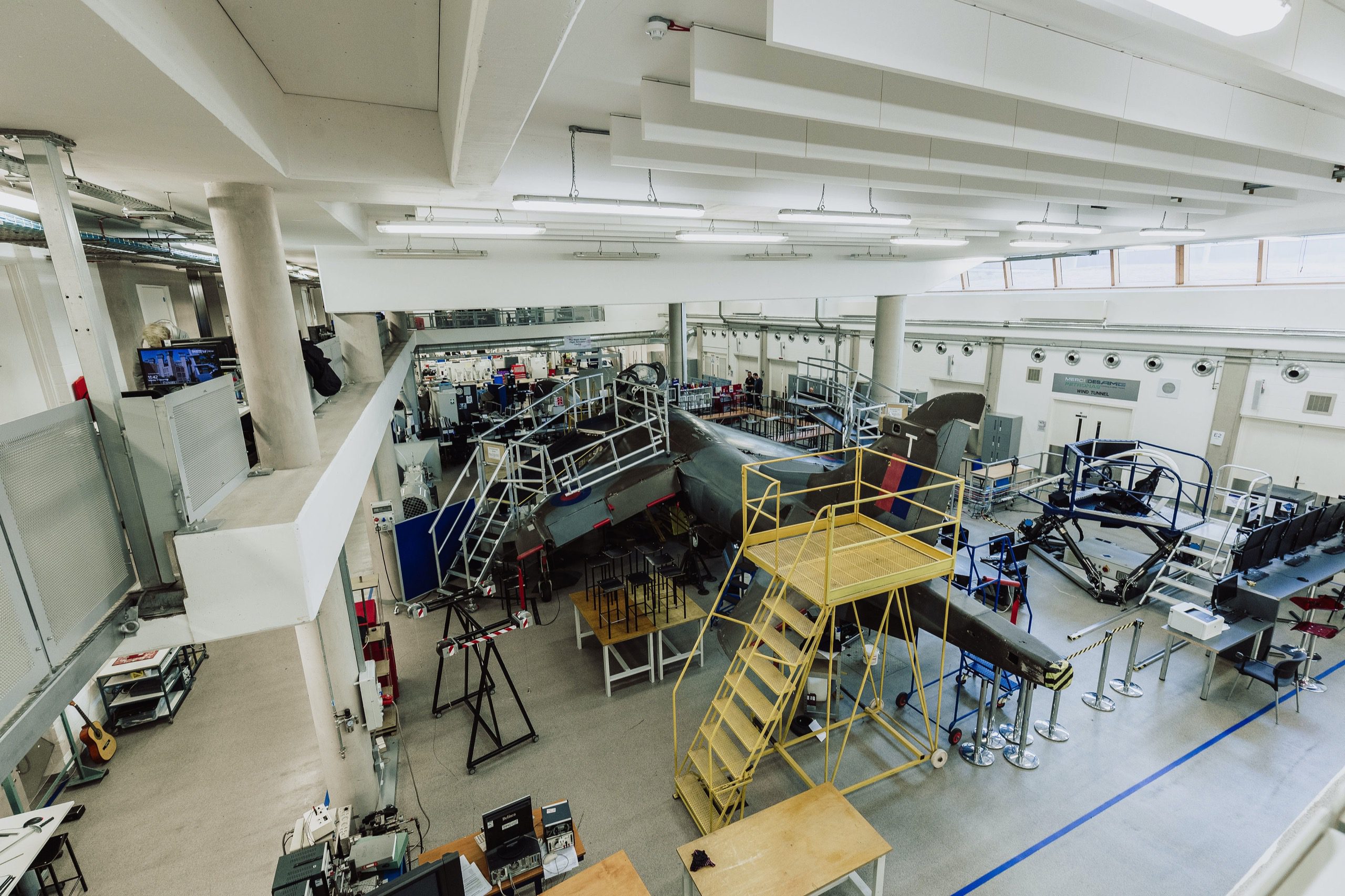
The High Temperature Research Centre
A collaboration between the University of Birmingham and Rolls-Royce, the centre is a unique casting, design, simulation and advanced manufacturing research facility. HTRC enables production-scale research and experimentation for businesses to deliver rapid high-quality product and process innovation.
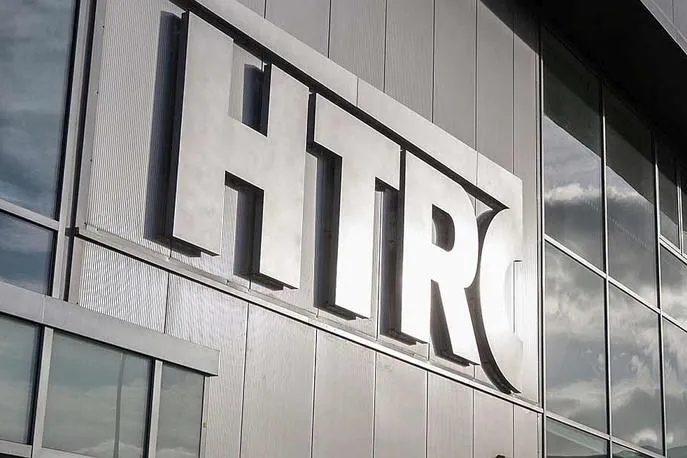
Flux Aviation
Flux Aviation creates integrated systems combining electric motors, batteries, and control electronics into a single unit, which can retrofit existing aircraft by replacing traditional combustion engines like ROTAX. This allows manufacturers to offer electric variants with minimal redesign.
Previously, building a library of compatible aircraft components was slow, requiring manual measurements. To improve this, Flux Aviation invested in 3D scanning technology but lacked the expertise to implement it effectively. Through WMG’s internship programme, they developed a new method, cutting aircraft measuring time from four weeks to just two hours, accelerating the aviation industry’s shift to zero-emission electric power.
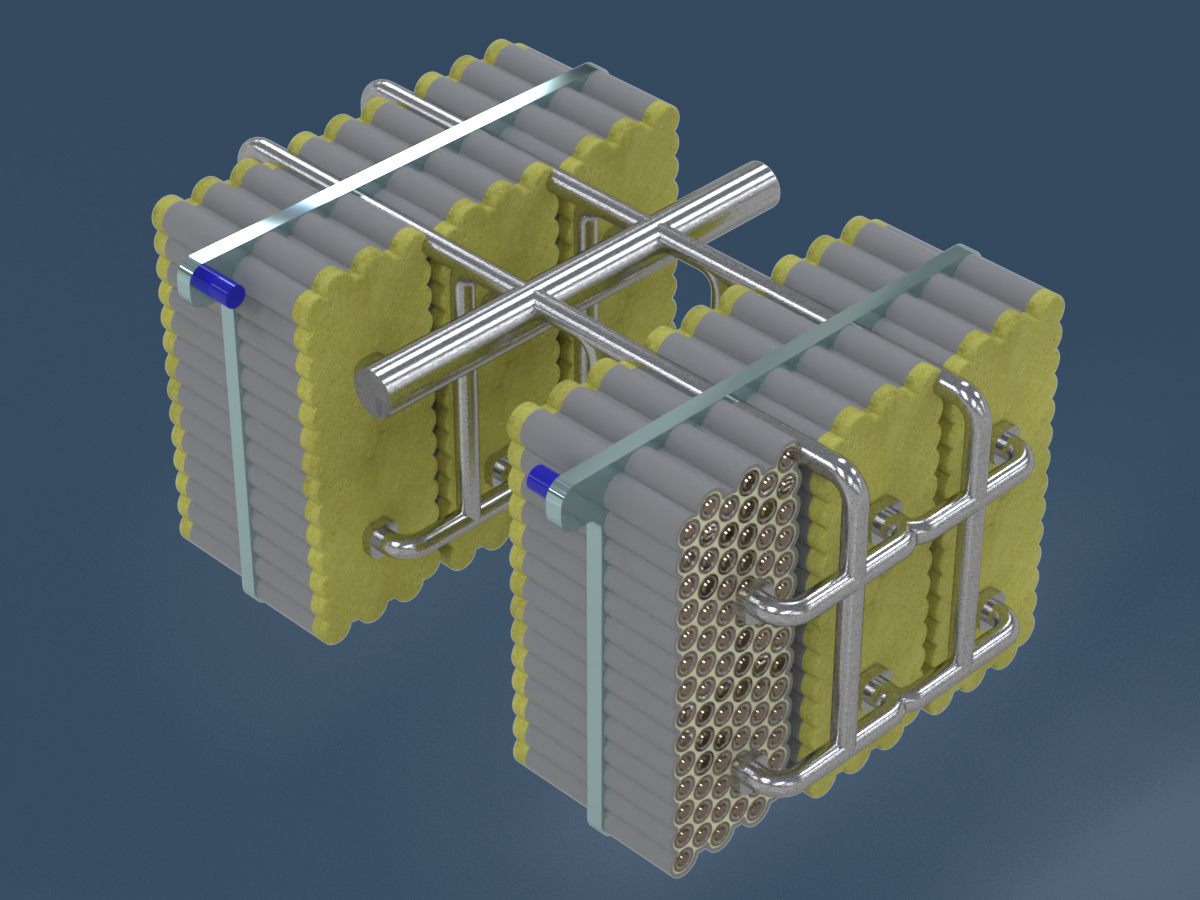
Drone Usage
Transport for West Midlands’ state-of-the-art Regional Transport Coordination Centre unites transport authorities, agencies, and operators to ensure smooth travel across the region during major events and incidents.
The value of drones is being realised in Coventry, where the City Council, in partnership with the Midlands Aerospace Alliance, is working on a DSIT-funded project to remove non-aviation regulatory barriers. This urban drone initiative promises innovative solutions across multiple sectors, fostering economic growth and enabling businesses to explore advanced deployment opportunities.
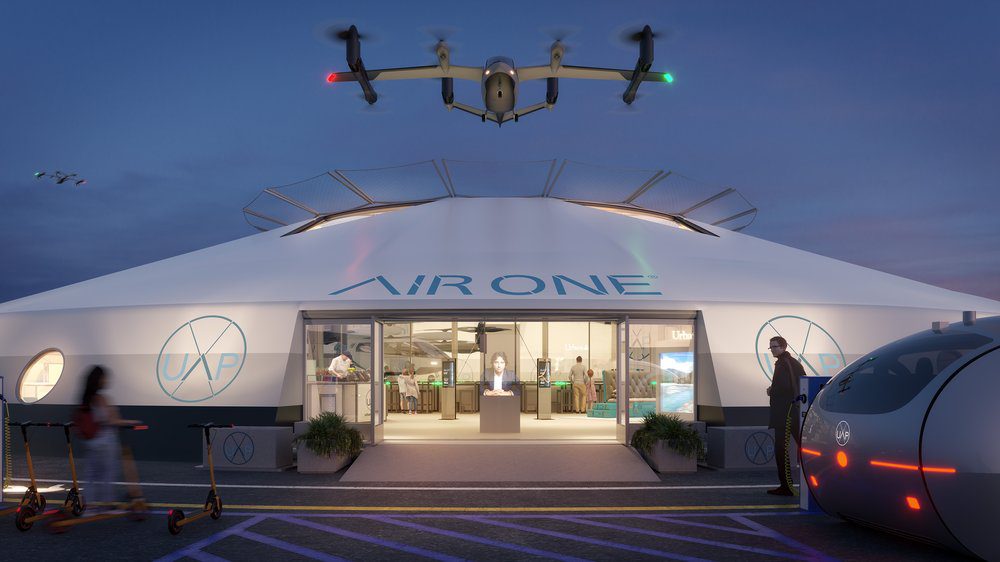
Air One
National Transport Design Centre researchers have used augmented and virtual reality technology to create the UK’s first pop-up airport and charging hub. Designed for future electric vertical take-off and landing aircraft – such as air taxis and autonomous delivery drones – the simulation focuses on how the airport should look, feel and function for customers. This demonstrates how university research can prepare the public for green technology while helping businesses test and develop use cases before implementation, delivering additional cost savings.
Aerospace knowledge, talent and skills for employers
In-Comm Training and RTX’s Collins Aerospace fast-track course
Training provider In-Comm works with local businesses to address skill gaps. In partnership with Collins Aerospace and supported by £200,000 of Higher Level Skills funding from WMCA, they’re set to train 65 CNC machinists and electro-mechanical fitters for the company’s Wolverhampton manufacturing facility.
Solihull College
Like many education establishments across the West Midlands, Solihull College understands the importance of developing qualifications aimed at learners preparing for roles in the industry. They’ve added courses in Aeronautical Engineering and Aircraft Maintenance Engineering to help deepen the region’s existing aerospace skills base.
Free support services
We bring together a project team from relevant organisations across the region. This team includes property agents, recruitment consultants, public sector departments and universities. It delivers a comprehensive support package to quickly and easily help you establish and scale your business in the UK.

